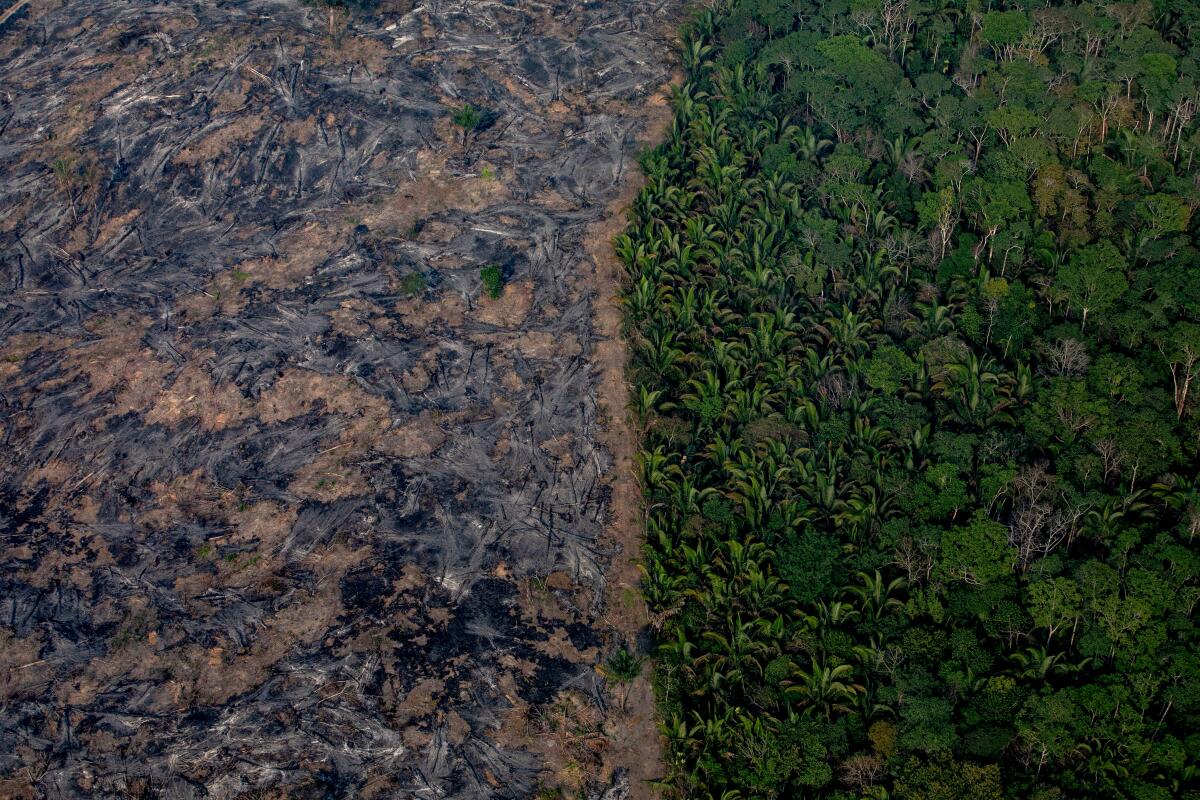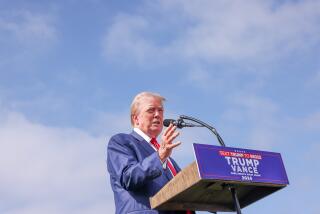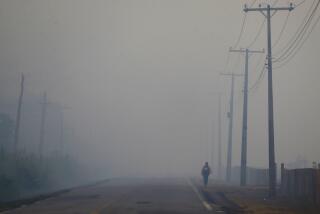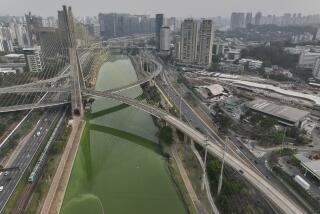Editorial: The Amazon is burning and Brazilian President Jair Bolsonaro doesn’t care

The fires raging at the edges of the Amazon rainforest are, at the moment, largely consuming lands that had already been converted from their natural state into tracts waiting to be farmed or developed. Nevertheless, some of the blazes are eating away at the rainforest itself, reducing its size by a football field a minute. And one of the most disturbing things about them is that they aren’t part of the cycle of nature, like a California wildfire might be, but are intentionally set in many cases to get rid of brush and felled trees to make way for soy fields and beef grazing grounds. That reflects Brazil’s troubling return to a policy of deforestation that, if unabated, could have grave consequences for efforts to counter the worst effects of global warming.
The reason the Amazon is burning is because Brazilian President Jair Bolsonaro, who followed Donald Trump’s populist, anti-establishment playbook to win election last year, wants it to. He thinks the Amazon should not be protected, and that lands reserved for indigenous peoples should not be recognized — all in the name of economic growth. That see-no-evil approach is another point Bolsonaro has in common with Trump, who has sought to make an alarming amount of public lands available for oil and gas drilling and other extractive industries, such as uranium mining — the health of the planet be damned.
At the just-concluded G-7 meeting in France, international leaders criticized Bolsonaro for his land-use and environmental policies, which include telling those who would cut the rainforest that his government would no longer stop them. So the rate of deforestation, while still far below what it had been a dozen years ago, has been increasing. The G-7 also announced more than $20 million in aid to Brazil and Bolivia for firefighting equipment — a drop in the bucket considering the need, advocates say — and French President Emmanuel Macron pledged to put together an alliance to push for reforestation.
Bolsonaro was not receptive; he accused the leaders of embracing colonialism by telling Brazil what to do. But there’s nothing colonial in asking a neighbor to stop lighting fires that affect the rest of us.
The Amazon rainforest, with its vast canopy of trees and other lush vegetation, removes about 5% of the global carbon humans emit into the atmosphere every year. That positive effect is offset to a degree by the carbon released by burning brush and trees in and around the rainforest, as well as by the cattle that roam the range that is taking up acreage carved from the rainforest — much of whose beef is destined for foreign markets.
So what does the deforestation of the Amazon have to do with us? When it comes to carbon, we are an inextricably connected world. The U.S. imports about 156 million pounds of beef from Brazil each year, which means our consumption is tied directly to the deforestation (Brazil is the world’s largest exporter of beef). Even Trump’s trade war with China has an environmental impact: China is replacing soy that it used to buy from U.S. farmers with soy from Brazilian farmers, which increases the rewards for cutting yet more of the rainforest.
We are all joined by the hard reality that our continued release of carbon into the atmosphere — whether it be from the cars we commute in or the forest Brazilians burn to grow food — is endangering us all. It’s a reality not recognized by Bolsonaro. Nor by Trump, who neither joined the criticism of Bolsonaro’s policies nor showed up for the G-7 climate talks that led to the fire aid package. Both presidents’ disregard for the well-being of the world is, literally, playing with fire. That won’t end well.
More to Read
A cure for the common opinion
Get thought-provoking perspectives with our weekly newsletter.
You may occasionally receive promotional content from the Los Angeles Times.










